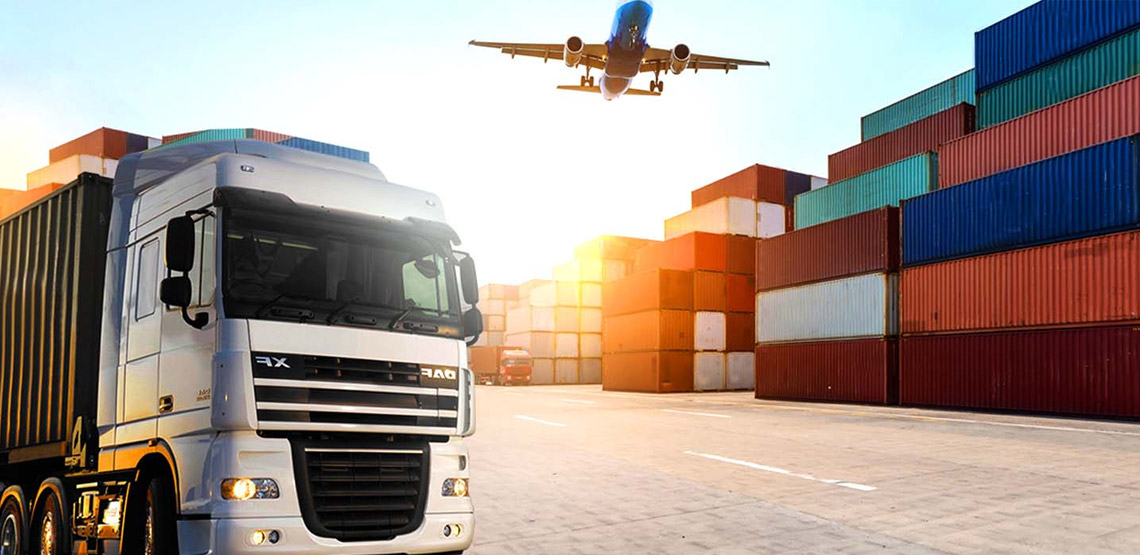
Disruptions in Global Logistics: Strategies for Resilience and Recovery
Global logistics is the backbone of international trade, facilitating the movement of goods across continents. However, the industry is not immune to disruptions, which can range from natural disasters and geopolitical tensions to pandemics and cyber-attacks. These disruptions can have significant ripple effects on logistics solutions company, impacting everything from raw material sourcing to final product delivery. In this article, we will explore key strategies for resilience and recovery that logistics companies can adopt to navigate these challenges effectively.
Understanding the Impact of Disruptions
To devise effective strategies, it is essential to understand the nature and impact of disruptions on global logistics. Here are some common types of disruptions:
- Natural Disasters: Earthquakes, hurricanes, floods, and other natural disasters can severely damage infrastructure, delay shipments, and increase transportation costs.
- Geopolitical Tensions: Trade wars, sanctions, and political instability can lead to sudden changes in regulations, tariffs, and border controls.
- Pandemics: The COVID-19 pandemic has highlighted the vulnerability of global supply chains, causing unprecedented delays and requiring new safety protocols.
- Cyber-attacks: As logistics becomes increasingly digitized, the risk of cyber-attacks grows, potentially leading to data breaches and operational paralysis.
- Economic Fluctuations: Recessions and economic downturns can reduce demand for goods and disrupt financial stability within logistics companies.
Building Resilience: Proactive Strategies
- Diversification of Supply Chains
Relying on a single source for raw materials or components is risky. Companies should diversify their supply chains by sourcing from multiple suppliers across different regions. This approach reduces dependency on any one supplier or geographic area, mitigating the impact of regional disruptions.
- Investing in Technology
Advanced technologies such as AI, IoT, and blockchain can enhance visibility and control over supply chains. AI can predict potential disruptions and optimize routes, IoT devices can provide real-time tracking of shipments, and blockchain can ensure transparency and security in transactions.
- Establishing Strong Partnerships
Collaborative relationships with suppliers, carriers, and other stakeholders can foster better communication and coordination during disruptions. Long-term partnerships based on trust and mutual benefit can facilitate quicker recovery and smoother operations.
- Developing Contingency Plans
Comprehensive contingency planning is crucial for swift response to disruptions. Companies should regularly conduct risk assessments and scenario planning to identify potential threats and develop response strategies. This includes creating backup plans for transportation routes, warehousing, and supplier alternatives.
- Enhancing Workforce Training
A well-trained workforce is essential for effective disruption management. Regular training programs on crisis management, technology usage, and safety protocols can prepare employees to handle unexpected situations confidently and efficiently.
Recovery Strategies: Responsive Actions
- Rapid Response Teams
Establishing rapid response teams dedicated to handling disruptions can expedite recovery processes. These teams should be equipped with the authority and resources to make quick decisions and implement recovery measures.
- Leveraging Data Analytics
Data analytics can provide valuable insights into the causes and effects of disruptions. By analyzing data from past incidents, companies can identify patterns and improve their response strategies. Predictive analytics can also help forecast potential disruptions and take preventive actions.
- Flexible Infrastructure
Investing in flexible infrastructure, such as modular warehouses and adaptable transportation modes, allows companies to adjust operations quickly in response to disruptions. This flexibility can minimize downtime and maintain the flow of goods.
- Financial Resilience
Maintaining financial resilience is crucial for weathering disruptions. This includes having sufficient cash reserves, securing lines of credit, and managing debt effectively. Financial stability ensures that companies can continue operations and invest in recovery efforts.
- Customer Communication
Transparent and timely communication with customers is vital during disruptions. Keeping customers informed about delays, alternative solutions, and expected recovery timelines helps maintain trust and customer satisfaction. Proactive communication can also reduce the negative impact on customer relationships.
Case Studies: Learning from the Past
- COVID-19 Pandemic
The COVID-19 pandemic caused widespread disruptions across global logistics. Companies that had diversified their supply chains and invested in digital technologies were better able to adapt to sudden changes in demand and transportation constraints. For instance, some logistics companies utilized AI-driven demand forecasting to manage inventory levels more effectively.
- Suez Canal Blockage
The blockage of the Suez Canal in 2021 highlighted the vulnerability of critical chokepoints in global trade routes. Companies that had established alternative shipping routes and maintained flexible logistics networks were able to reroute shipments and minimize delays.
- Cyber-attacks on Maersk
In 2017, Maersk, one of the world’s largest shipping companies, fell victim to a cyber-attack that disrupted its operations. The incident underscored the importance of robust cybersecurity measures. Following the attack, Maersk invested heavily in improving its cybersecurity infrastructure and employee training programs.
Future Outlook: Preparing for New Challenges
As global logistics continues to evolve, new challenges will emerge. Companies must stay ahead of the curve by continuously improving their resilience and recovery strategies. Here are some future trends to consider:
- Sustainability Initiatives
Environmental sustainability is becoming increasingly important in logistics. Companies should invest in eco-friendly technologies and practices to reduce their carbon footprint and comply with evolving regulations.
- Adoption of Autonomous Vehicles
Autonomous vehicles and drones have the potential to revolutionize logistics by improving efficiency and reducing dependency on human labor. However, companies must address regulatory and safety challenges before widespread adoption.
- Integration of AI and Machine Learning
AI and machine learning will play a critical role in optimizing logistics operations. Predictive analytics, automated decision-making, and intelligent routing can enhance efficiency and resilience.
Conclusion
Disruptions in global logistics are inevitable, but companies can build resilience and ensure swift recovery by adopting proactive and responsive strategies. Diversifying supply chains, investing in technology, and developing robust contingency plans are essential for minimizing the impact of disruptions. Additionally, leveraging data analytics, maintaining flexible infrastructure, and ensuring financial stability can expedite recovery efforts. By learning from past incidents and preparing for future challenges, logistics solutions company can navigate disruptions more effectively and continue to support the global economy.